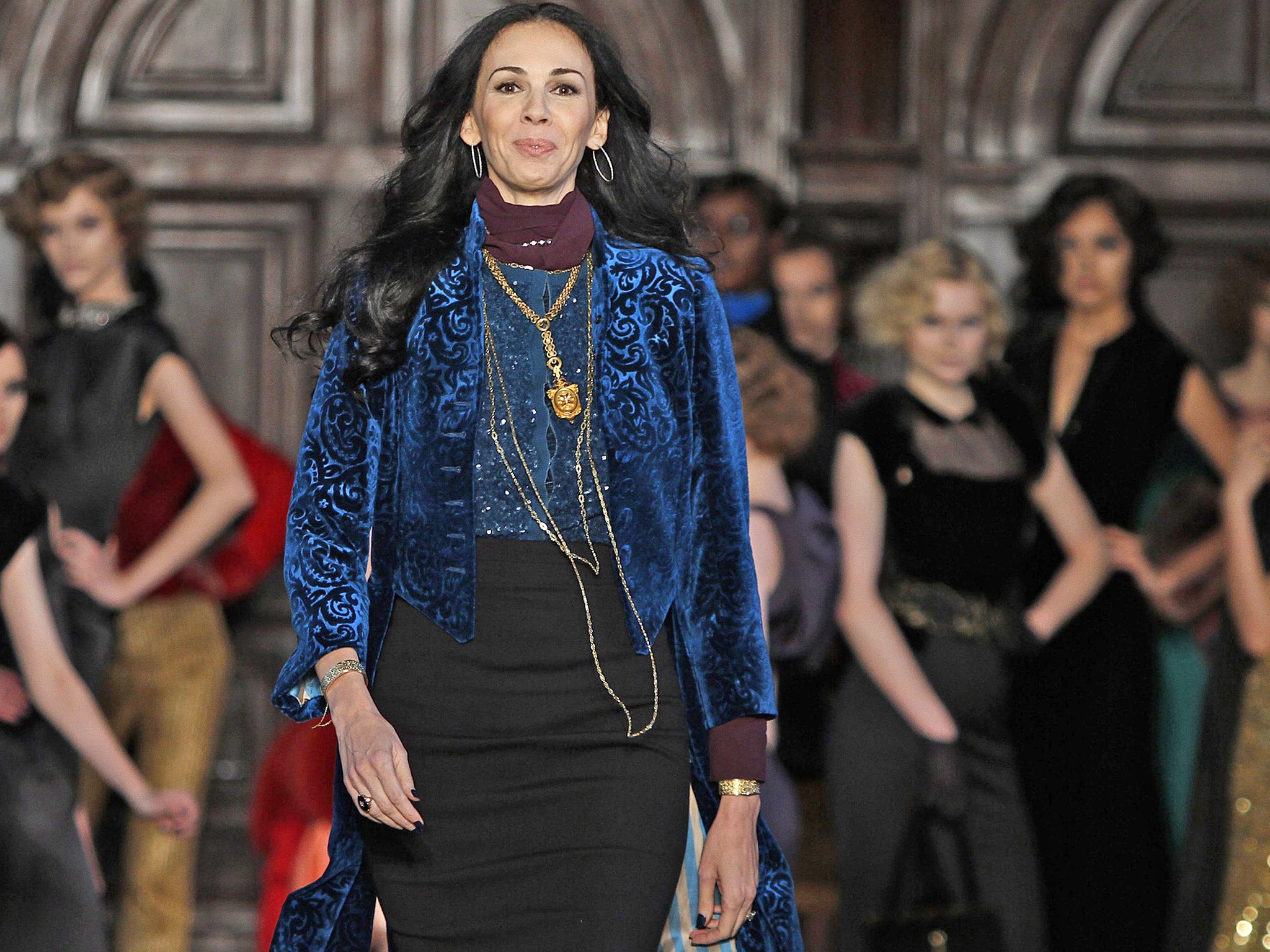L'Wren Scott: How the media views women
The fashion designer L'Wren Scott was so much more than just 'Mick Jagger's girlfriend'. But you wouldn't know it from reading reports about her death, says Harriet Walker

Your support helps us to tell the story
From reproductive rights to climate change to Big Tech, The Independent is on the ground when the story is developing. Whether it's investigating the financials of Elon Musk's pro-Trump PAC or producing our latest documentary, 'The A Word', which shines a light on the American women fighting for reproductive rights, we know how important it is to parse out the facts from the messaging.
At such a critical moment in US history, we need reporters on the ground. Your donation allows us to keep sending journalists to speak to both sides of the story.
The Independent is trusted by Americans across the entire political spectrum. And unlike many other quality news outlets, we choose not to lock Americans out of our reporting and analysis with paywalls. We believe quality journalism should be available to everyone, paid for by those who can afford it.
Your support makes all the difference.When someone tinged with stardust dies, we inevitably end up knowing a little too much about them. The mawkish media engine, fuelled by death as a commodity, swiftly cranks into gear with details of childhood, celebrity friends, even – as we saw yesterday after L'Wren Scott's suicide – the way in which she ultimately let go of life.
The Daily Mail had grabbed the "Mick Jagger's girlfriend commits suicide" URL and top search ranking within five minutes of the news breaking, by simply publishing a blank page – doing so before anyone else and thereby accumulating all the page views that come with it. This is how modern journalism works; the unseemly prurience that has always been at the heart of the "tragic loss" narrative is now written, devastatingly bluntly, in code and web traffic.
But there was something rather more archaic about this story, too: the way it was reported, the packaging and the framing of it.
Between the cynicism of the news cycle and the wails of the fashion industry's professional mourners (a crowd you can really count on to throw up their hands and ululate), there are really two salient facts you should know about Scott: she was a fashion designer and she was Jagger's girlfriend. In that order.
But when the announcement came, there was only a clutch of people who described her death as anything other than Jagger's tragedy. Perhaps it's understandable, given that Scott was not an industry titan whose name had crossed into the vernacular. For those who don't follow fashion closely, Jagger's proximity is the news hook, their relationship the context. Should a famous woman's less famous husband die, she would have been invoked in the same way.
And had Scott simply been an "it girl", a society wife or a lady who lunched, the recounting on radio and breakfast news yesterday morning of her death in terms of Jagger cancelling his Australian tour might have been more justified, if still a rather unpleasant metonymy for the value put on women's lives and roles.
But as it was, the fact that Scott worked hard throughout her life, had been, variously, a model, a celebrity stylist of the highest order and a designer with her name on the schedules of fashion weeks in London and New York, was forgotten. It was secondary information and it shouldn't have been.
Scott had a Twitter following of several thousand before her account was suspended yesterday. She had styled and dressed the likes of Nicole Kidman and Penelope Cruz. She had carved out a career and professional portfolio that many people dream of, in an arena that is pretty hard to break into whether you are Jagger's girlfriend or not – which she wasn't when she started out.
Historically, we have remembered women through the lens of the husbands or partners they had. To do so now, even as we complain at the lack of working women in boardrooms, positions of power and the public eye, seems almost wilfully chauvinistic.
It's a depressing reality that women exist to make the news look nice, to wear clothes and to be linked to successful men. What's more depressing is that Scott had successfully built a business on the first two and it was only the third on which most people concentrated. When great men die, we talk of the family they leave behind. We discuss their work and their deeds. As we learn how to grieve via social media, we share quotes, photographs and video clips, as happened with the outpourings for Tony Benn and Bob Crow. The TV chef Clarissa Dickson Wright, who also died on Monday, was feted with facts from her unusual life and eclectic career, her obituaries shared on Facebook.
Scott was a brand in her own right – literally. She was a business. She was stamped on to labels in clothing. She lived off her own name. So for that to have been so easily subsumed into Jagger's at the moment of her death speaks volumes, not only about how the media views women's lives but also about how it views their work. µ
Harriet Walker is news editor at Never Underdressed
Join our commenting forum
Join thought-provoking conversations, follow other Independent readers and see their replies
Comments